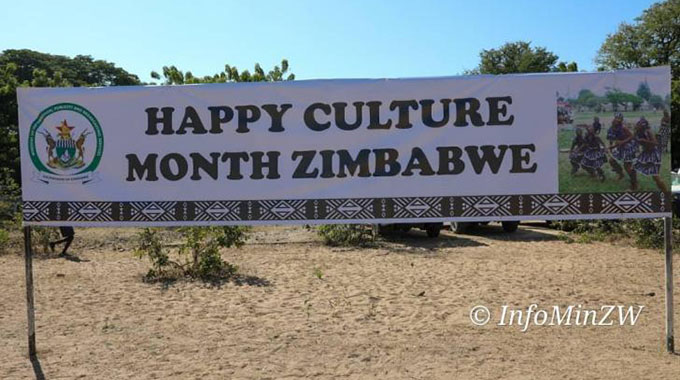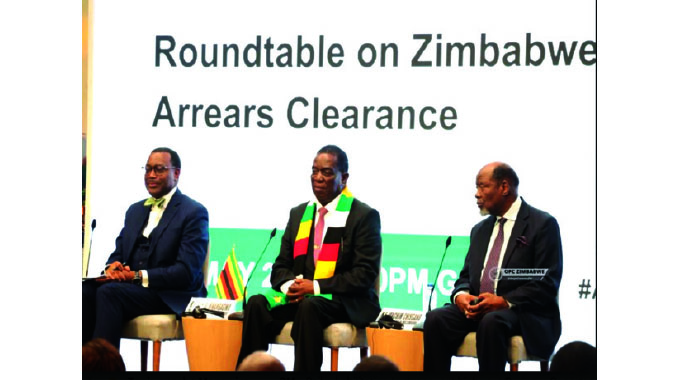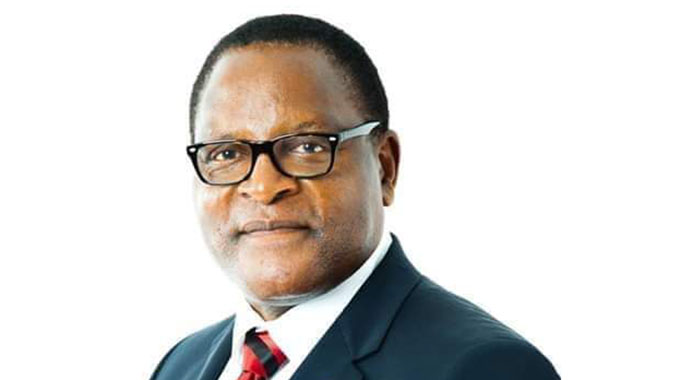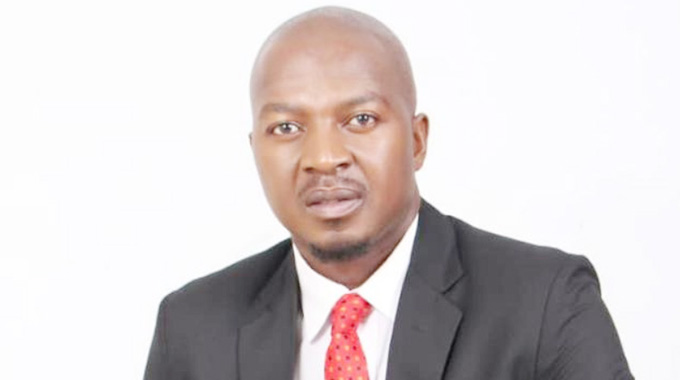EDITORIAL COMMENT: Cultural values important for societal growth

LAUNCHING National Cultural Month in Binga district was not just fulfilling the Second Republic’s determination to make sure all parts of Zimbabwe are included in national events, with no part left behind, but also sends several other very clear messages that help us understand just what culture is.
There are still some who see culture as something largely outside their everyday life, a sort of preserved picture of what life may have been like a century ago, or two centuries ago. And that is totally wrong. For culture is how we live and helps direct how we act.
President Mnangagwa, when launching the culture month, was not talking about actions and pictures, but about values, the sort of values inherent in every society that if we are smart, will direct the way we change our societies, especially once we are able to figure out what may need changing and what could well be allowed to remain without change.
In other words, our culture and the values that our culture is built on direct the way we grow and our community grows and our nation grows. If we are growing from a solid foundation, because we have solid ties to our culture, then what we build will last.
For growth in inherent in culture, and Binga district perhaps exemplifies this better than most.
In colonial times, the district was used to illustrate how cute a deprived area where no one had much opportunity to progress economically was.
It was not shown as an area where there was hope, or even an area that had a realistic future, but rather one where people survived, just, in an imagined older world. In other words it was different, so different, that it simply did not connect to the modern world.
The difference with the modern day is large. President Mnangagwa did not just launch the National Culture Week in Binga, he also commissioned an extension to a secondary school and a new clinic, which showed his understanding of how people can thrive in a modern environment without losing their culture or their self respect.
Another vital point was language, and a transmitter of culture and cultural values. The President for the first time agreed to an interview with a local community radio station, Tswasumpuka FM, necessary since this station broadcasts in BaTonga, the language of most people who live in the district.
Possibly the most significant cultural action taken by the Second Republic has been the licensing and support for community radio stations broadcasting in the language of their local communities.
As a way of ensuring the survival of the smaller language groups as living languages, rather than as a fossil for linguistic scholars, community radio is ideal.
Zimbabwe is made up of many cultures and people who speak many languages, there being 16 listed in the Constitution a decade ago, and the fact that these were all entrenched shows that each is equal in status.
But for practical purposes, much communication is still in the group of the languages with the most speakers or the languages which are spoken more widely.
There is nothing much wrong with this, and no one has ever suffered by being bilingual or trilingual, so long as everyone does retain their own mother tongue and the cultural values that it holds.
A language is far more than just a collection of words. This is why translation should always be done by a speaker of the language a work is being translated into, so that the full gloss of what was said in the original language can be brought across.
But while most Zimbabweans are proud of their own languages, and use them for social communication with other speakers, they perhaps do not take them far enough.
Churches provide a major formal environment for local languages, with agreed translations of the Bible, a lot of liturgical language and Christian concepts.
Musical artistes are a main driver of modern development, there being hardly any music in modern Zimbabwe that is not built on someone’s mother tongue.
But we still miss the growth of the written languages with agreed new vocabulary to express many modern scientific and technological ideas. Some purists tend to decry the young generation’s use of language, and their willingness to bring in new words or to derive new words for new things and new ideas. Yet all languages need this.
Most languages around the world these days adapt largely the same root words for much of this needed new vocabulary, as anyone who travels who wants to use a telephone will know, but in many the newspapers and the writers help develop the final forms of the local adaptation.
Our languages tend to miss out a lot of this; they are living languages but not complete literary languages.
The spread of the community radio stations in local languages will help immensely in pushing forward the goal of growing languages so they can be used in all circumstances.
We also need to remember that cultures are not fixed. To take one example, the end of child marriages. Ten years ago Zimbabweans decided they wanted the minimum age of marriage raised to 18.
The previous age of 16 had entered our law from the law in the United Kingdom of Great Britain and Ireland early last century, before most of Ireland won its own freedom, and that replaced the previous UK minimum age of 13.
So all cultures tended at some stage to allow child marriages. The major shift to 18 was, however, driven by Zimbabweans, not imposed by outsiders, and as our traditional leaders have explained was driven largely by a recognition of the true fundamental values in our cultures, in this case the fundamental value of the worth of every person, including the value of the worth of teenage girls.
This was a case of a deeper cultural value overtaking an outward manifestation that no longer made much contact with the deeper meaning, so the change went through both the constitutional referendum and the resulting Act of Parliament without much trouble.
This is why the core cultural values are so important, as they can drive our understanding of the world and our communities.
When we can rest on the solid foundation of our culture then we can build and grow with confidence, since we have that security and that sense of self-worth that anchors us and allows us to move forward with confidence to deal with new issues and new worlds.








Comments